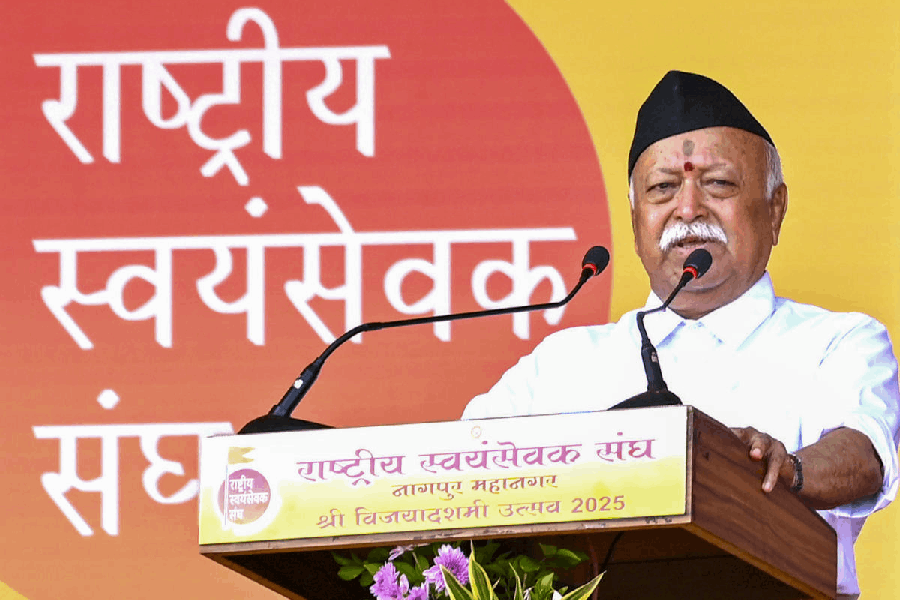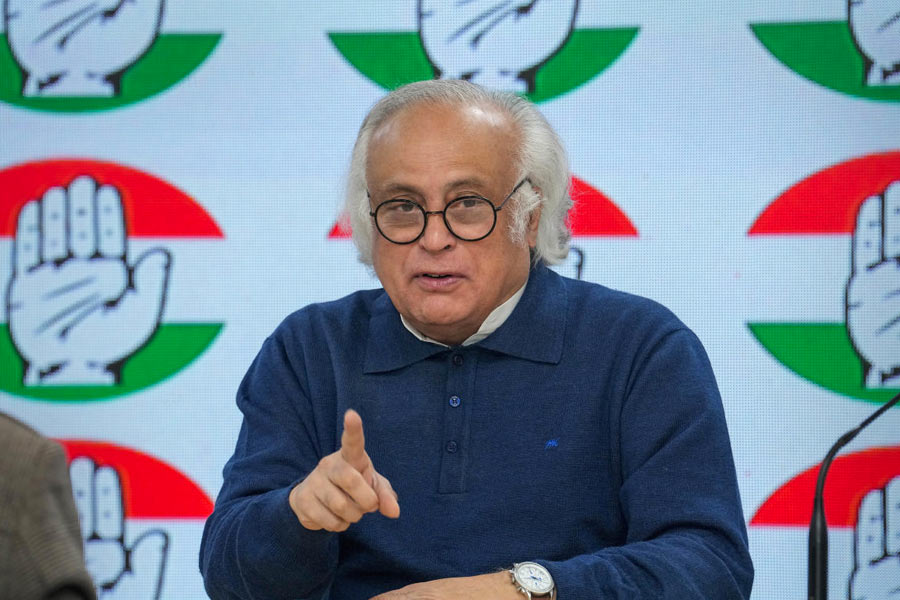RSS chief Mohan Bhagwat on Thursday warned that recent turmoil in Nepal, Sri Lanka and Bangladesh reflected the “grammar of anarchy” BR Ambedkar spoke of, cautioning that forces seeking such instability are active both within and outside Bharat.
Addressing the annual Vijayadashmi rally at Reshimbagh in Nagpur, which also marked the centenary celebrations of the RSS, Bhagwat said: “The forces wanting to create such disturbances in Bharat are active inside as well as outside our country, but violent outbursts cannot bring about desirable change.”
Bhagwat went on to say, “BR Ambedkar calls such a movement ‘grammar of anarchy”.
Bhagwat further warned that violent uprisings only bring instability, foreign interference and regime collapse without achieving their stated objectives.
The RSS chief said the violent outbursts of public anger in Sri Lanka, Bangladesh and Nepal, culminating in regime changes, were a matter of deep concern for India.
“Change can happen by democratic means. The so-called revolutions do not achieve their objectives. Outside forces get an opportunity to further their agenda in such situations. We feel they are ours and not just our neighbours. The situation there is of concern to us,” Bhagwat said.
He warned that such unrest weakens nations and creates space for dominant world powers to “play their own games”.
Bhagwat underlined that Nepal’s recent protests, which began as peaceful demonstrations against corruption and restrictions on social media platforms but escalated into violent clashes leading to regime change, exemplify the risks of upheaval.
Similar unrest in Bangladesh and Sri Lanka, he said, has created regional instability that could impact India.
Bhagwat stressed that peace, stability and prosperity in neighbouring countries are essential for India, not only for protecting its interests but also because of cultural and civilisational ties.
“In one way, they are part of our own family,” he said.
Bhagwat also cited the tariff policies adopted by the United States under President Donald Trump as an example of countries pursuing self-interest.
He noted that international relations should be shaped by choice, not compulsion.
He said India must prioritise “swadeshi” (indigenous resources) and “swavalamban” (self-reliance) to preserve its autonomy in international trade and politics.
“The world operates through mutual interdependence. By becoming aatmanirbhar (self-reliant) and being cognizant of global unity, we must ensure that this global interdependence does not become a compulsion for us, and we are able to act according to our own will. There is no substitute for swadeshi and swavalamban,” he said.
Bhagwat said the positions taken by various countries after the Pahalgam terror attack showed the nature and extent of their friendship with India.
“Even though we maintain friendly relations with other countries, and we will continue to do so, when it comes to our security, we need to be more careful, more watchful and stronger. After the Pahalgam attack, the positions taken by various countries also revealed which of them are our friends, and to what extent,” Bhagwat said.
He said terrorists crossed the border and killed 26 Indians after checking their religion in Pahalgam in Jammu and Kashmir, which drew a fitting response from the country, referring to Operation Sindoor.
“This caused immense pain and anger in the country. Our government made complete preparations and gave a firm rebuttal. In the aftermath, the leadership’s resolve, the valour of our armed forces and the unity of society were evident,” he said.
He said extremist elements had faced action from the government, while society too distanced itself after recognising their “hollowness”.
“They will be controlled. A major hurdle has now been removed in that area,” the RSS chief said.
He also said that the lack of schemes ensuring justice, development, goodwill, sensitivity and strength often leads to the rise of extremist forces.
“People who are annoyed by the system’s lethargy tend to seek support from such extremist elements. To prevent this, the state and society must work together through initiatives that give people faith in the system,” Bhagwat said.
The RSS chief also raised concerns about the environmental consequences of development.
He said climate change has been impacting the environment for the past three to four years and called for revisiting policies to safeguard the Himalayas, which he called India’s “security wall.”
Bhagwat concluded by noting that while enthusiasm to make India a global leader is visible, particularly among the younger generation, flaws in the prevailing economic system, such as rising inequality, concentration of wealth, environmental degradation and transactionalism, need urgent attention.












